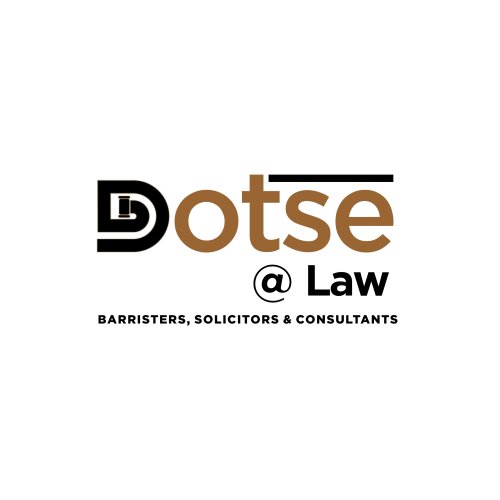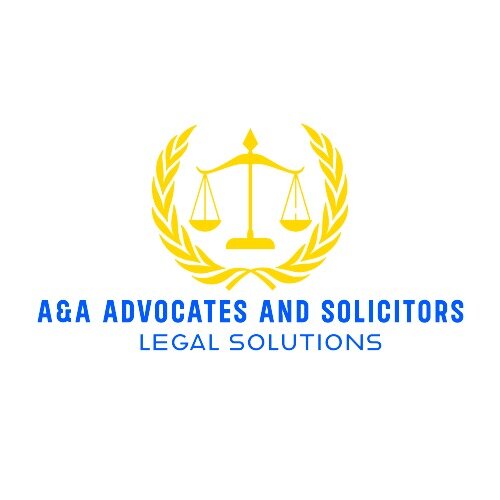Best Communications & Media Law Lawyers in Accra
Share your needs with us, get contacted by law firms.
Free. Takes 2 min.
List of the best lawyers in Accra, Ghana
About Communications & Media Law in Accra, Ghana
Communications & Media Law in Accra, Ghana, touches upon the diverse legal issues relating to media, telecommunications, and broadcasting sectors. It covers a wide range of topics including, but not limited to, licensing, regulatory compliance, content regulation, privacy rights, and intellectual property. Given the rapid growth of digital platforms and the increasing impact of social media, the scope of this law is continuously expanding. The National Communications Authority (NCA) and the Ministry of Communications are the key regulators in this field, ensuring adherence to national laws and international standards.
Why You May Need a Lawyer
Individuals or organisations may require legal help in Communications & Media Law for various reasons. Some common situations include negotiating contracts for media production and distribution, addressing regulatory compliance issues, dealing with defamation cases, or protecting intellectual property rights online. Additionally, entities looking to establish or operate a broadcasting service or to engage in telecommunications may need assistance with obtaining necessary licenses and navigating complex regulatory frameworks. Legal support is also invaluable when facing litigation in any of these areas.
Local Laws Overview
The key aspects of local laws that are particularly relevant to Communications & Media Law in Accra include the National Communications Authority Act, 2008 (Act 769), which sets the stage for licensing and regulation of telecommunications and broadcasting services. The Electronic Communications Act, 2008 (Act 775), provides the framework for electronic communications and transactions. There is also the Data Protection Act, 2012 (Act 843), which lays down the principles governing the collection, use, and disclosure of personal information. Laws related to intellectual property rights, such as the Copyright Act, 2005 (Act 690), are also critical in this sector. These laws are continuously updated to address the evolving nature of the communications and media landscape.
Frequently Asked Questions
What is considered defamatory content in Ghana?
Defamatory content in Ghana is defined as any communication, be it written, spoken, or published, which has the effect of injuring a person's reputation by exposing them to hatred, contempt, or ridicule.
Do I need a license to start an online radio station in Accra?
Yes, operating any broadcasting service in Ghana, including online radio stations, requires obtaining a license from the National Communications Authority.
How does copyright law work in Ghana?
Copyright in Ghana is automatic and protects original works of authors such as literary, musical, artistic, and audiovisual content from unauthorized use, provided these works are documented in a tangible form.
Can I freely use content posted on social media?
No, the content posted on social media is generally owned by the person who created it or potentially the platform, depending on the terms and conditions of the site. Use of such content without permission may infringe on copyright laws.
What are the consequences of non-compliance with data protection laws in Accra?
Non-compliance with data protection laws can result in monetary fines, legal sanctions, and reputational damage for individuals or companies responsible for breaching personal data protection protocols.
Who regulates advertising content in Ghana?
Advertising content in Ghana is regulated by the Advertising Standards Authority of Ghana as well as the National Media Commission, which ensure that adverts comply with ethical standards and are not misleading or offensive.
What should I do if my internet privacy rights are violated?
If you believe your internet privacy rights have been violated, you should seek advice from a lawyer specializing in communications and media law to explore available legal options, which may include litigation.
How can I protect my intellectual property online?
To protect your intellectual property online, consider registering your works with the appropriate authorities, use technological protection measures (TPMs), and enforce your rights through cease and desist notices or legal action if necessary.
What is the role of the National Communications Authority in Ghana?
The National Communications Authority is responsible for licensing and regulating telecommunications and broadcasting services, as well as managing the radio spectrum and ensuring fair competition within the sector.
Can I be held liable for user-generated content on my website?
Depending on circumstances, website owners can be held liable for user-generated content, especially if they are aware of the unlawful nature of the content and fail to take prompt action to remove it.
Additional Resources
Individuals seeking legal advice in Communications & Media Law in Accra could consult the following resources:
- The National Communications Authority (NCA) for regulatory guidance and licensing requirements.
- The Ministry of Communications for policy and legislative updates.
- The Ghana Intellectual Property Office for matters related to intellectual property rights.
- Local legal directories and bar associations for finding accredited lawyers specialized in communications and media law.
Next Steps
If you need legal assistance in Communications & Media Law, the first step is to consult with a qualified lawyer who specializes in this field. You can find such lawyers through local bar associations, referrals, or by contact with the organizations listed in the additional resources. Prepare to provide detailed information about your case or issue to ensure accurate legal guidance. Lastly, ensure any actions you take are in compliance with both national laws and international standards, where applicable.
Lawzana helps you find the best lawyers and law firms in Accra through a curated and pre-screened list of qualified legal professionals. Our platform offers rankings and detailed profiles of attorneys and law firms, allowing you to compare based on practice areas, including Communications & Media Law, experience, and client feedback.
Each profile includes a description of the firm's areas of practice, client reviews, team members and partners, year of establishment, spoken languages, office locations, contact information, social media presence, and any published articles or resources. Most firms on our platform speak English and are experienced in both local and international legal matters.
Get a quote from top-rated law firms in Accra, Ghana — quickly, securely, and without unnecessary hassle.
Disclaimer:
The information provided on this page is for general informational purposes only and does not constitute legal advice. While we strive to ensure the accuracy and relevance of the content, legal information may change over time, and interpretations of the law can vary. You should always consult with a qualified legal professional for advice specific to your situation.
We disclaim all liability for actions taken or not taken based on the content of this page. If you believe any information is incorrect or outdated, please contact us, and we will review and update it where appropriate.











